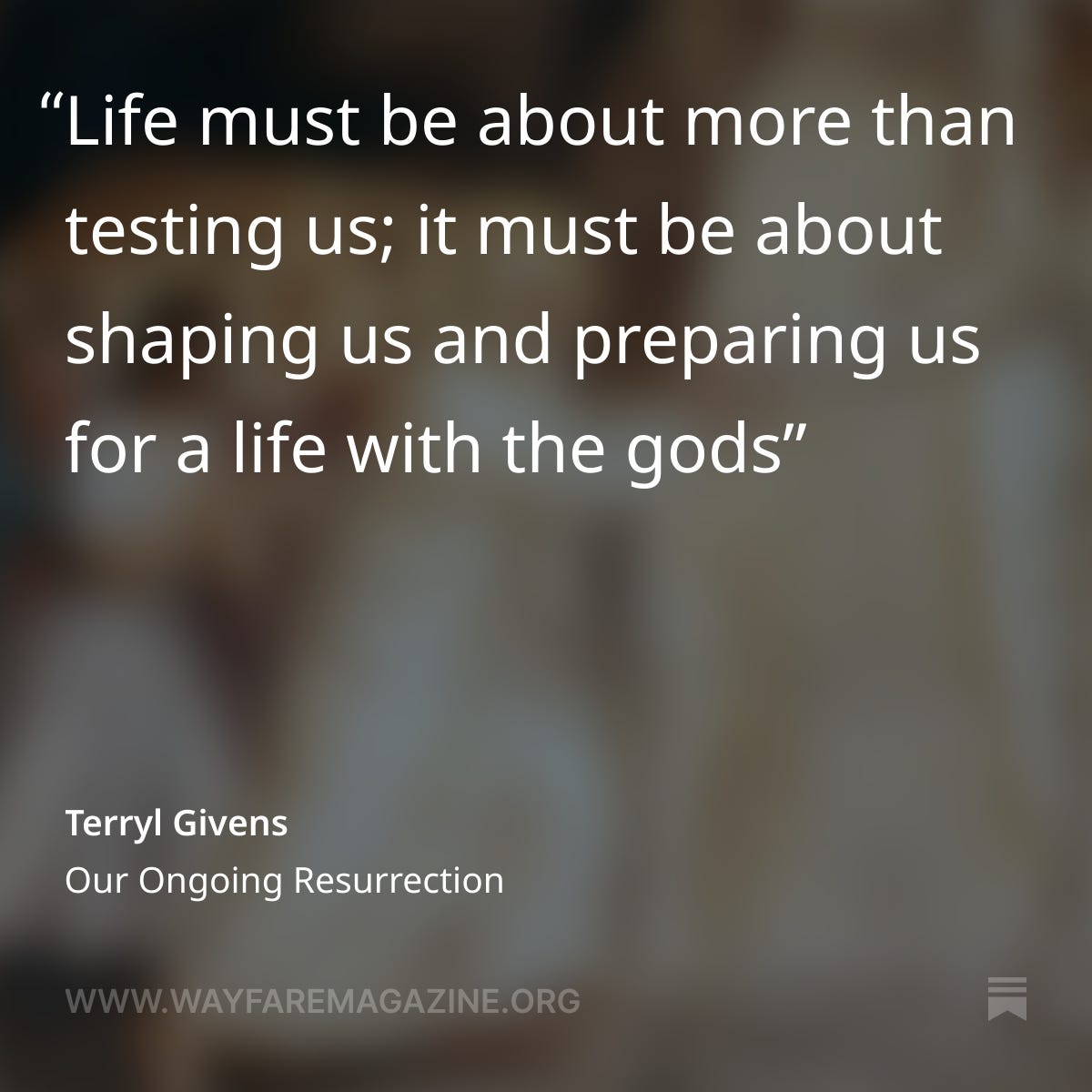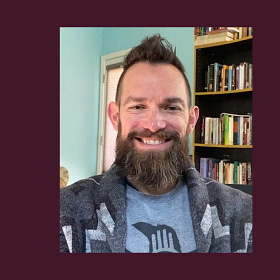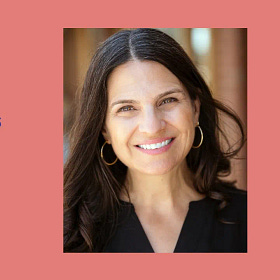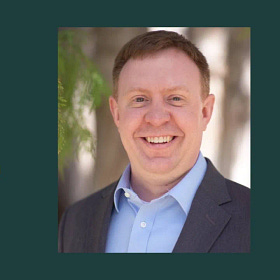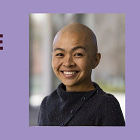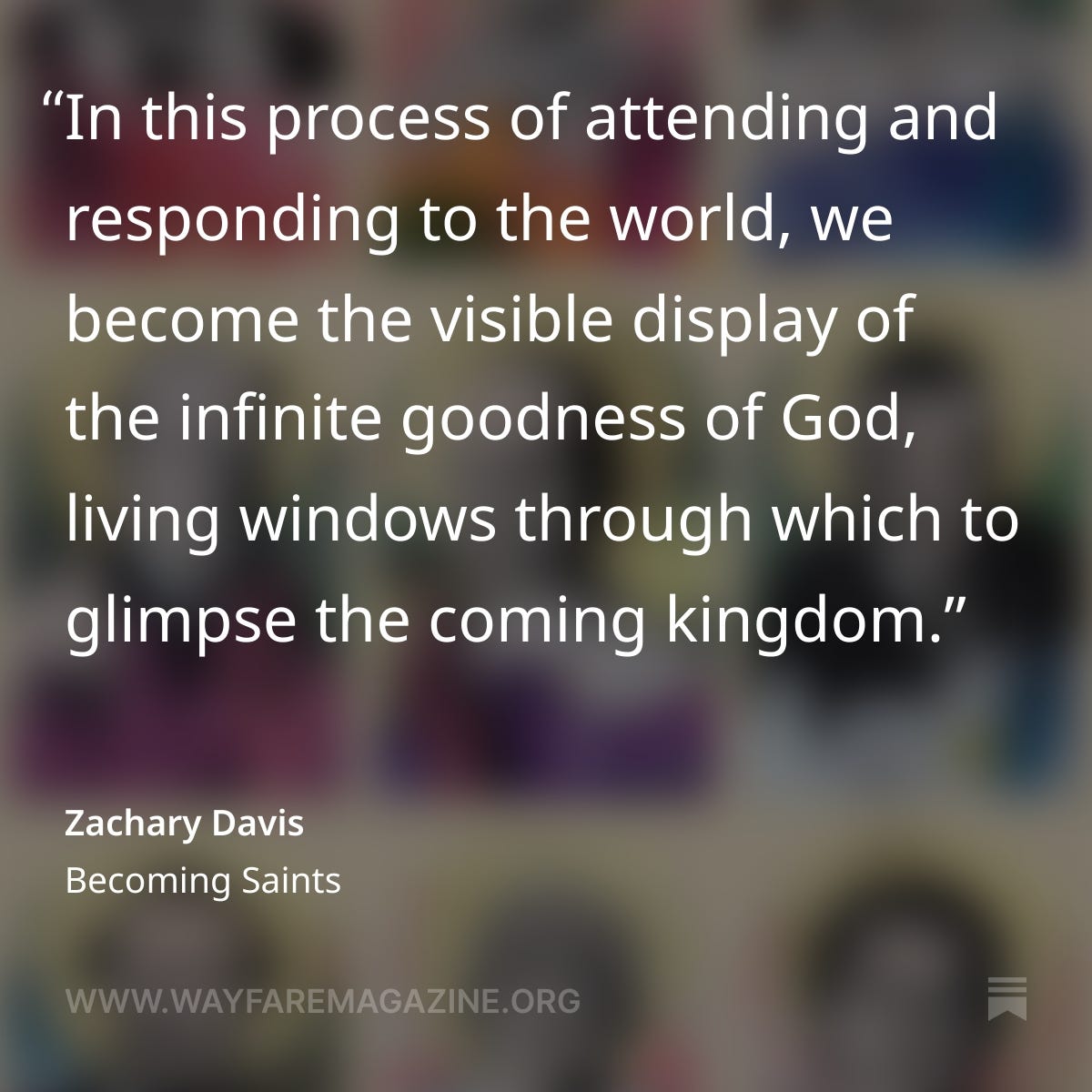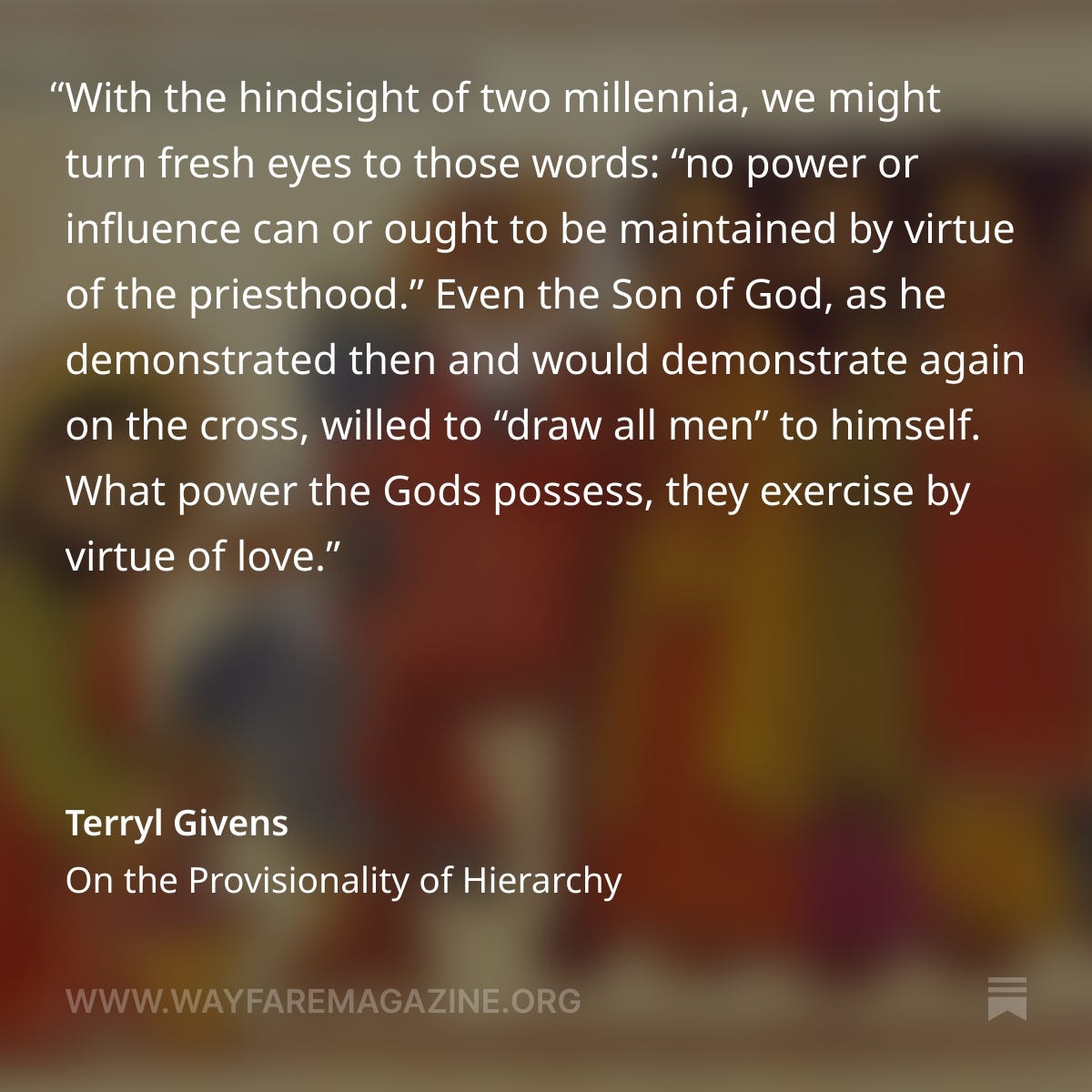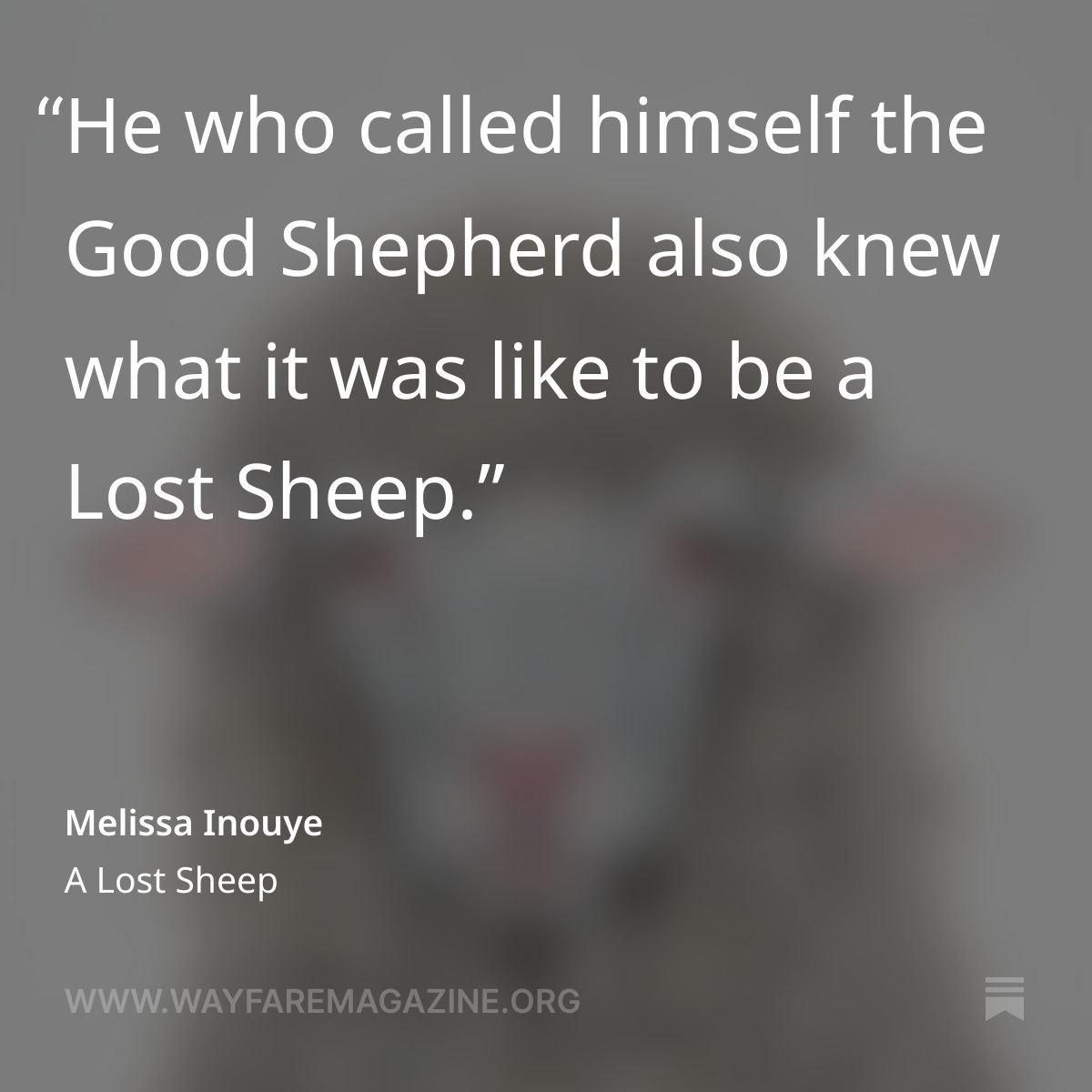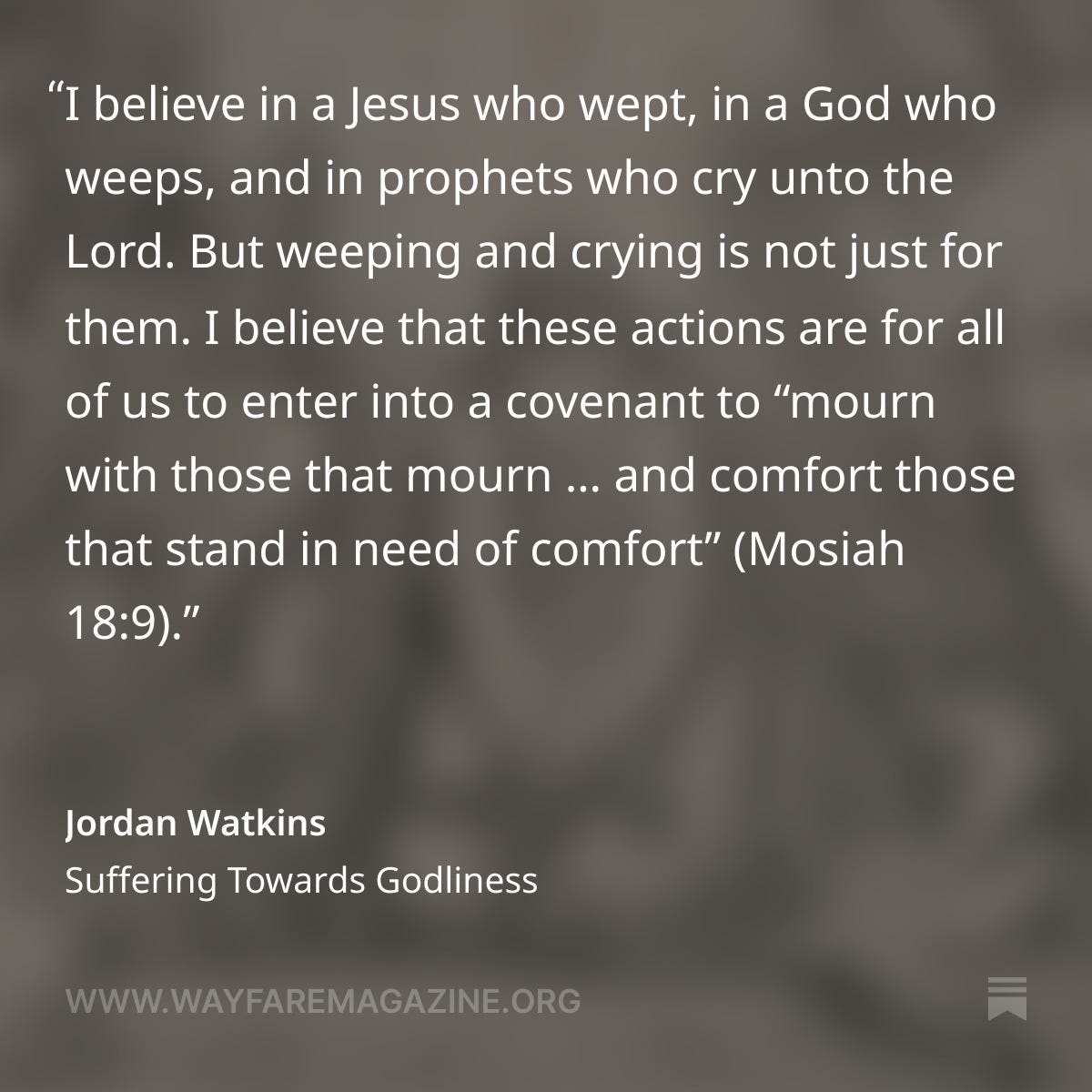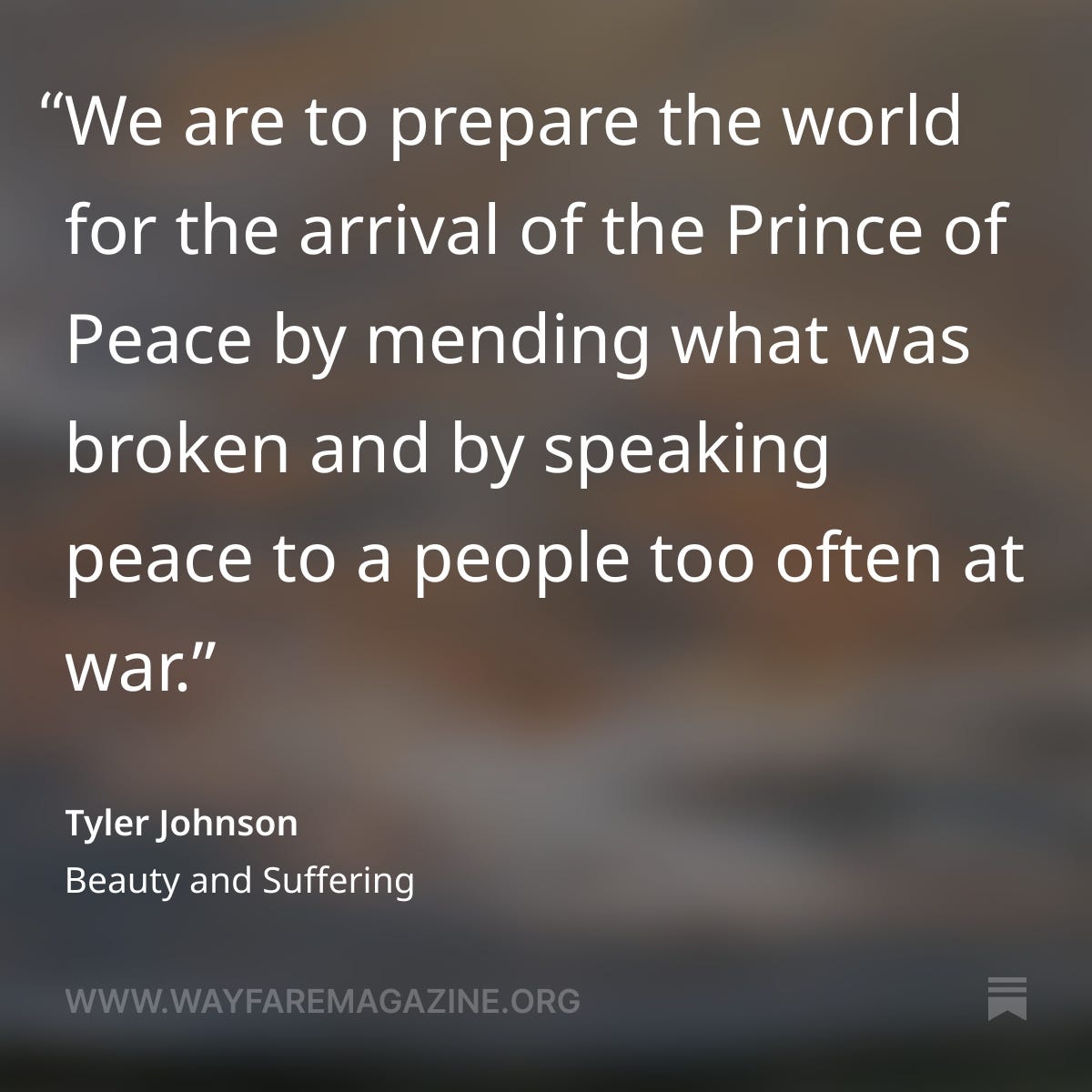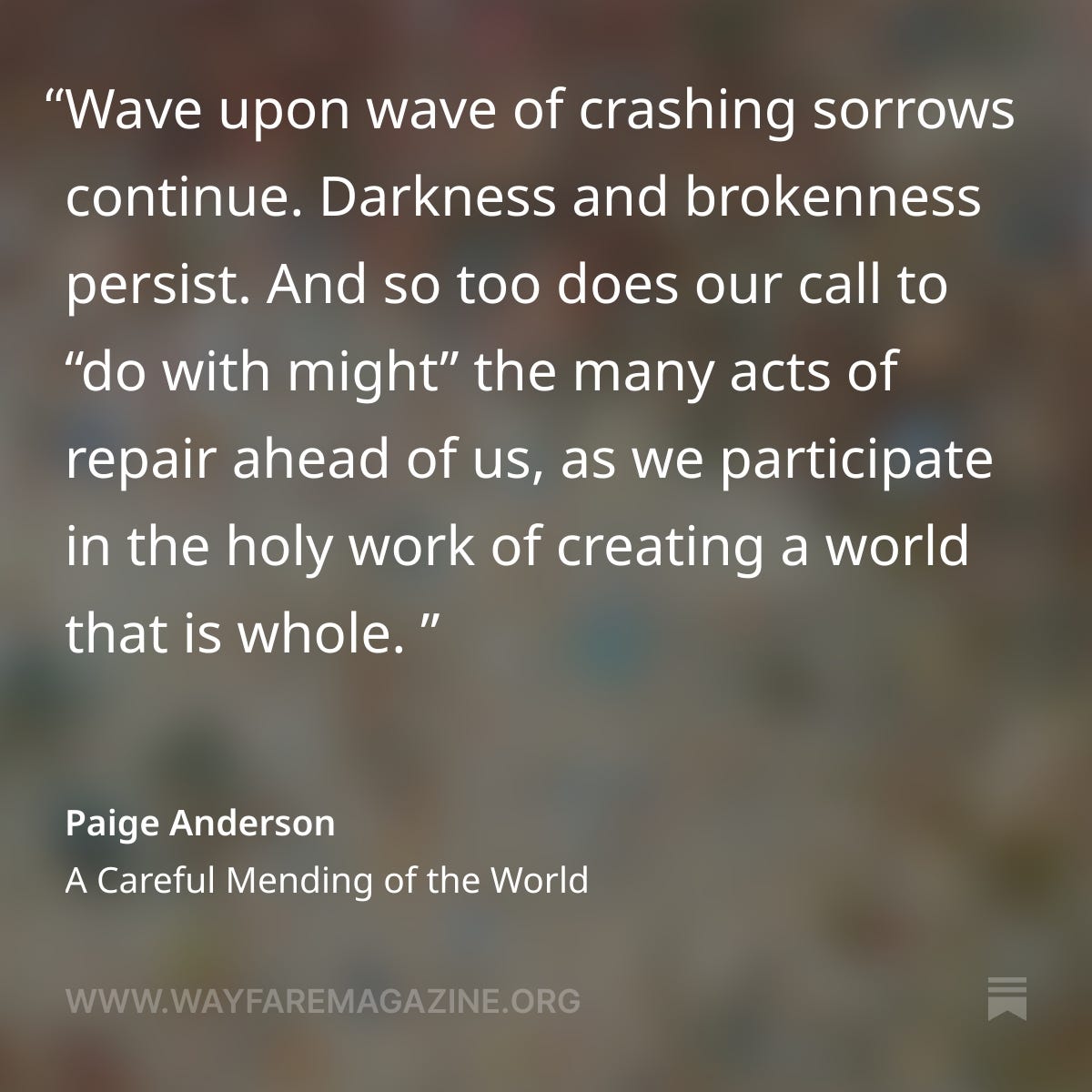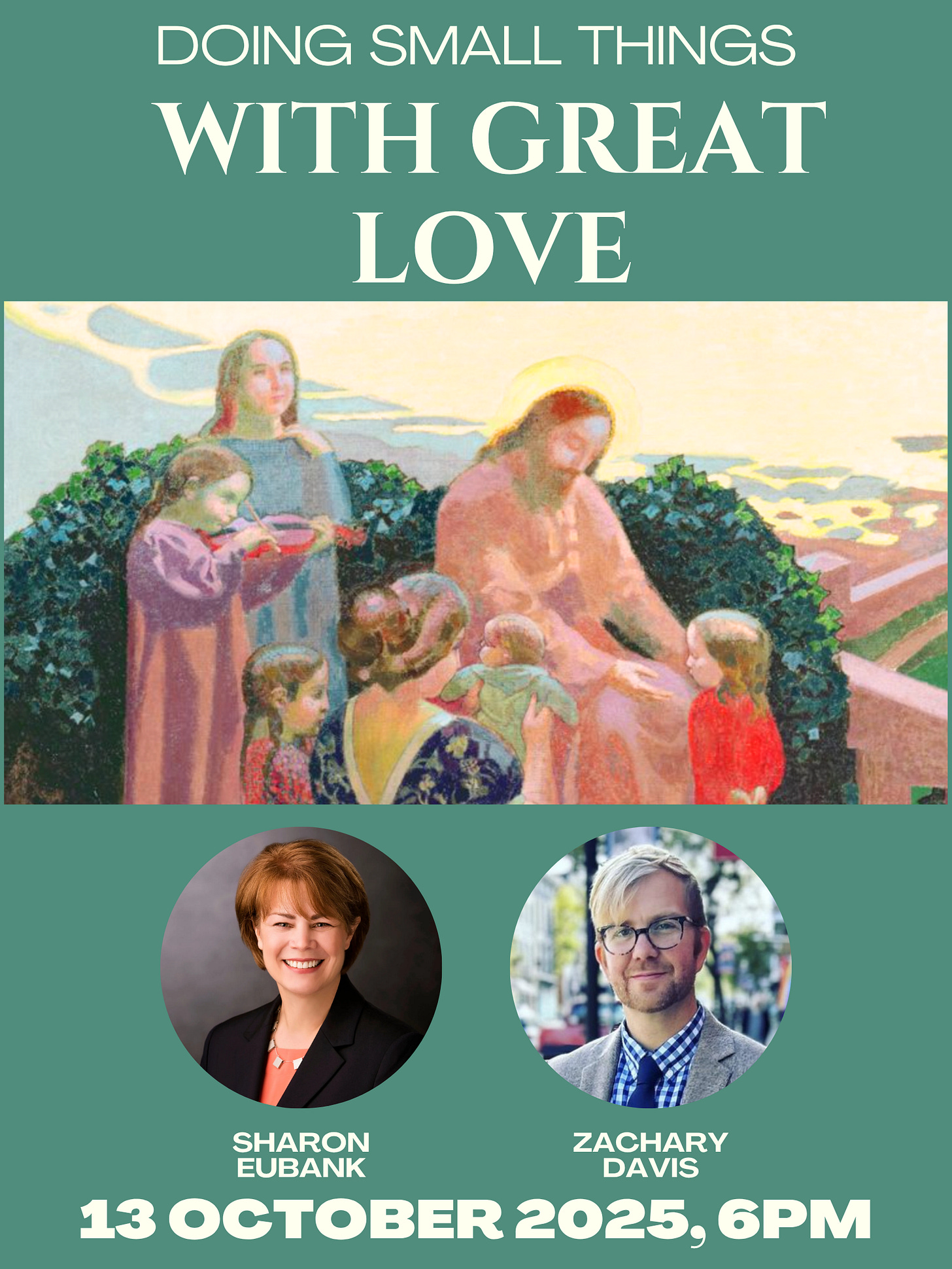How do we respond to suffering?
Faith Matters resources to accompany your Come Follow Me study: October 20-26

With God, adversity can “be for [my] good.”
I believe that the Son and the Father weep because they refuse to look away from evil. They choose to share in our suffering. When Enoch questioned the Father for weeping, the Father asked him to look, really look, at man’s inhumanity to man. And Enoch “looked upon [the people’s] wickedness, and their misery, and wept” (Moses 7:41). Enoch had been preoccupied with the salvation of his own community. So preoccupied, in fact, that he had succeeded in creating a Zion that God had lifted into heaven. Enoch’s efforts had raised the living. But the Father had to remind him of those who had been left behind, of those who still suffered down in the dirt. In the process, Enoch learned that God’s life was not a life without suffering, because God’s love was not confined to those who loved him. He realized that to love like God meant to suffer like God.
—Jordan Watkins, “Suffering Towards Godliness”
Mike Petrow: The Path of Descent
In one of the most powerful moments of this conversation, Mike describes a moment of profound loss—sitting at his mother’s bedside as she passed away—and then, just hours later, holding his newborn niece for the first time. These moments of symmetry revealed a truth that is at the heart of this entire conversation: that loss, and grief, and pain carve out a space in our hearts that can eventually be filled with love, joy and connection.
Sharon Brous: The Amen Effect
Sharon makes the case that when we sit with each other in “celebration, sorrow, and solidarity,” we are connecting in ways that not only forge deep and lasting relationships, but contribute to a larger healing in our communities and in the world.
Patrick Mason: The God of Friday
In this conversation, we dive into the hard questions: Where is God in the midst of such suffering? How can communities possibly recover from such deep wounds? And how do we respond to scripture that seems to contradict our understanding of a loving God? Patrick draws on his experience as a peacebuilder, scholar, and a person of faith to address these issues, and we explore how the lessons from Rwanda resonate with us here and now in conflicts within our own communities.
Should we always assign meaning to struggle?
This conversation we had with Melissa deals with struggle itself, but also with its second-order effects: how can struggle be alchemized into connectedness — into Zion — instead of driving us apart? Who gets to assign meaning to struggle? Is there a way to avoid pain in a community, or is it built into the experience?
True power and influence are based on “the principles of righteousness.”
Listen to this conversation with Dr. Rebecca Glazier, whose work offers a powerful perspective on how congregations can heal divisions—not just within their walls but across society:
Jesus Christ has descended below all things so that He can lift me up.
Christ shrank from none of the bitter indignities of mortality, in order to be someone who is not insulated from our difficult lived reality. If you only live in a beautiful, prosperous world in which the beautiful and righteous prosper, then people who spent the day curled up in pain are not for you, and you are not for them. But through his hard-won experience of mortal griefs and sorrows, Jesus sees us, knows us, is with us. He was the lowest of the low, the saddest and most “confugysed” of us all.
Since the beginning of the human experience, humans have been trying to make sense of pain. But sometimes there is no sense. Sometimes, rich as they are, cultural practices, religious rites, and thoughtful theologies simply fall short of the realities of lived experience.
So, at least for now, I am unable to conclude with a coherent declaration that ties everything up with a bow. I have nothing systematic to offer our theologies. Only this am I able to say:
I know how it feels to be lost and broken.
And so does Jesus.
—Melissa Inouye, “The Lost Sheep”
“Let us cheerfully do all things that lie in our power.”
It would be easy enough to say “I believe in God because of the beauty I find in the world.” But that’s not the only thing our religion offers us. Restored Christianity fixes our eyes on beauty, yes, but also on suffering and, by doing so, invites us into covenantal empathy with God that extends in ever-widening circles, encompassing more and more of our fellow travelers, until we are brought to a love as consuming and infinite as the reach of space.
—Tyler Johnson, “Beauty in Suffering”
Brian McLaren: Life After Doom
This conversation is an empowering call to action and an invitation to do the kind of inner work that makes us brave in the face of real fear and uncertainty. Brian asks, "What if it doesn't turn out? How will we face the future if things get worse instead of better?" He offers gentle encouragement to reach deeper into ourselves and find a stronger, more resilient type of hope: the kind that, as Václav Havel said, “is not the certainty that things will turn out as we wish, [but] is the conviction that some things are worth doing, no matter how they turn out.”
Even small things can make a big difference in God’s service.
Join us for a conversation with Sharon Eubank about her new book Doing Small Things with Great Love.
Drawing from decades of experience in humanitarian service, Sharon Eubank offers a wisdom-packed guide on how to enact impactful aid in the world and especially in your own backyard. Whether you’re inspired by compassion or looking to enrich your life through meaningful service, this book will change how you approach helping others.


